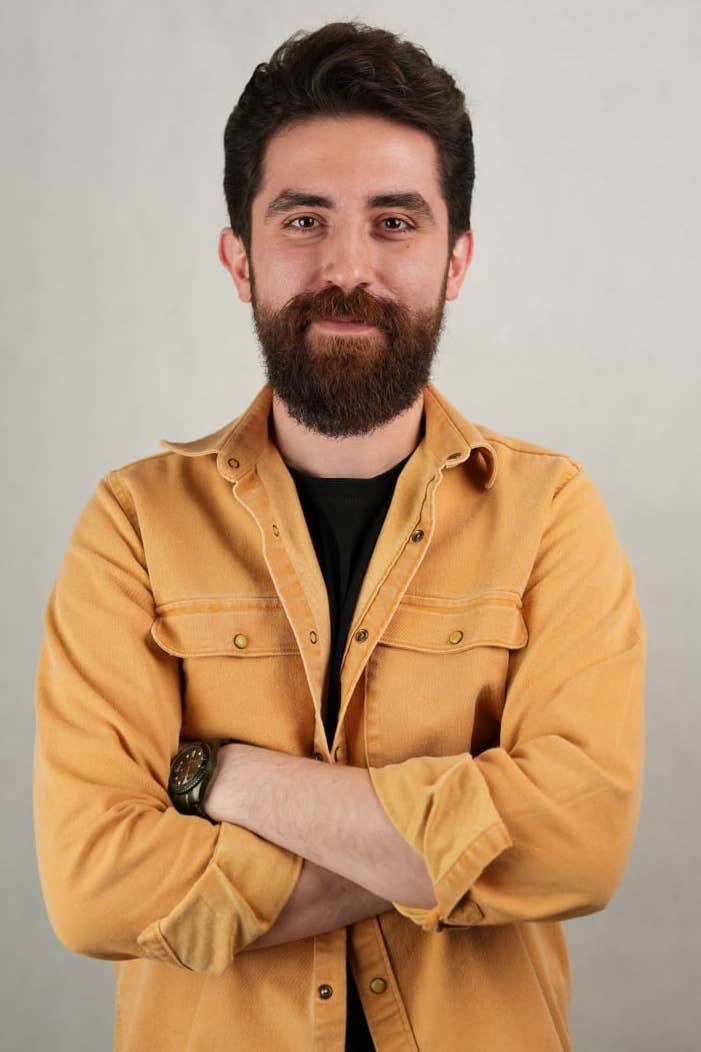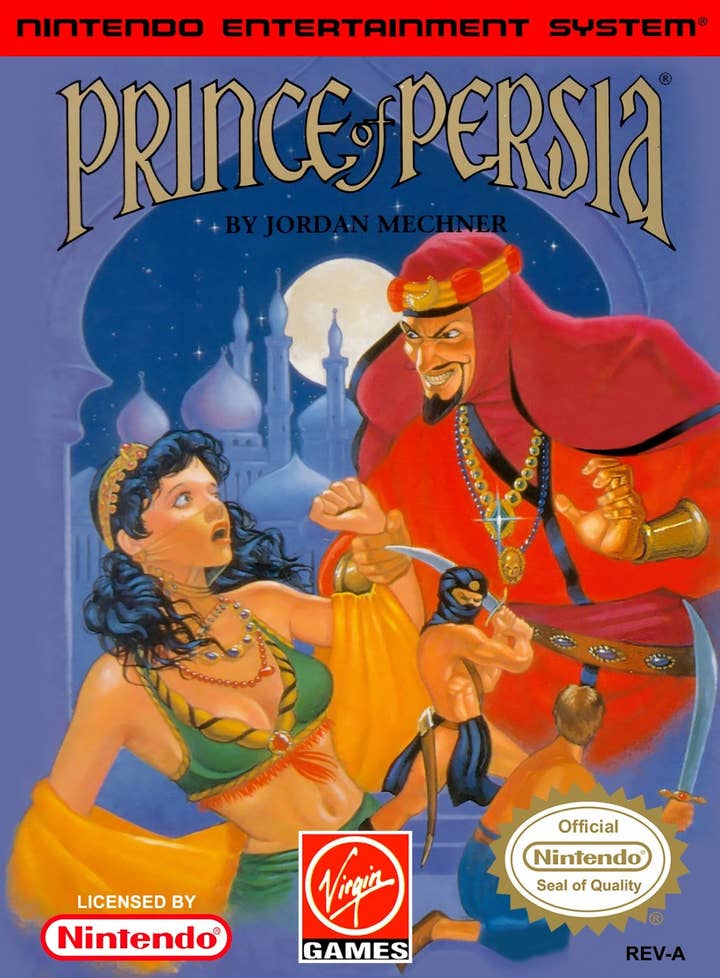How the Prince of Persia can finally speak Persian
The team behind Prince of Persia: The Lost Crown's localization talks about the 35-year-old franchise's inclusion of Persian language for the first time
Sign up for the GI Daily here to get the biggest news straight to your inbox
"I couldn't believe I was going to work on an actual Prince of Persia game!"
Sepehr Torabi was shocked when he found out he was hired to provide the voices of multiple characters in Prince of Persia: The Lost Crown. Torabi, an experienced voice actor, operates his own sound studio amusingly named 'Persian Dub Group,' which produces diverse content, including voice acting and music for Iranian digital games. Additionally, they have ventured into the international market by providing dubbing services for upcoming Chinese games.

Torabi was hired by Moj-e Kitab, a prominent book publication in Iran that also operates a voice acting agency, for a project referred to as 'The Iranian Prince,' which he presumed to be an unofficial translation for a preview Prince of Persia title or a new (but similar) IP from an Iranian developer. The true nature of the project remained a mystery until much later.
"Even when I asked them to take a look at the script before recording, they didn't allow it."
This was the moment Torabi became suspicious that he may be involved with the upcoming Prince of Persia game.
"I was incredibly happy when I learned that I was going to work on the Lost Crown. Honestly, I was going through some troubling days, and I wasn't sure if I had the time to commit to this project. I even considered not doing it, but I'm very glad I did. I'm sure I would have regretted it for the rest of my life."
He wasn't told the name of the game until they were completely done with the dubbing process.
"It felt like a fever dream. I wasn't sure it was the official dub of the game either until the recent trailers from Ubisoft showed our work."
Torabi's uncertainty is not surprising, given that this is the very first Western game to be fully localized into Persian (or Farsi). While many games, including the Prince of Persia series, have drawn inspiration from Persian history and culture, none have included official localization for the game until now. The Farsi localisation, voice production, sound production and performance were all handled by Cutting Edge FZC.
Persian is spoken by a significant number of people worldwide, totaling around 130 million. It serves as an official language in various countries and provinces, with Tajikistan being a predominant example. However, the majority of Persian speakers reside in Iran and Afghanistan, two countries that face substantial sanctions from the Western world.
The geopolitical situation and diplomatic challenges have created a barrier for the widespread localization of games into the Persian language and very few international studios have attempted to fully localize their games into Persian.

It's worth noting that there have been a few games with official Persian localization, such as Darksiders 3, which included Persian subtitles. However, the quality of the Persian subtitles in that particular game faced heavy criticism from Iranians. Some of 11bit Studio games have also received official Persian subtitles on the Iranian platform Hayula because of their partnership with Dead Mage Studio, the creators of Garshasp.
But none of the mentioned examples have undertaken localization on the scale of Prince of Persia: The Lost Crown, which involves full dubbing into Persian.
"It is a great milestone," says Lida Mahmoudi, the project manager of Moj-e Kitab. "The uniqueness of this project is defined by the nature of copyrighted content. While the majority of localizations in Iran are typically done through unofficial means due to a lack of opportunity, this project is officially localized with the supervision of Ubisoft. This is unprecedented in the industry."
Torabi adds: "I remember hearing Persian words being spoken here and there in previous Prince of Persia titles and always got me excited and made me think about a potential Prince of Persia game with full localization."
He mentions that not only is this a big step forward for the state of dubbing and localization in Iran but also, a substantial step forward for him personally as a professional voice actor in the game industry.
"It is finally time for Iranian voice actors to be heard worldwide."
"While the majority of localizations in Iran are done through unofficial means, this project is officially localized with the supervision of Ubisoft. This is unprecedented in the industry"
Lida Mahmoudi, Moj-e Kitab
The dub has received an overwhelmingly positive reaction from the Iranian gaming community, according to the team.
"I really hope Ubisoft continues this attitude of localizing their games into Persian because many have shown great interest in playing this title," mentioned Mahmoudi.
Assassin's Creed: Mirage received a similar reaction from Arab-speaking people and, by and large, people from the Middle East due to its full localization of the game into Arabic, as well as including Persian segments.
And the attention given to the local culture is not limited to localization. The localization team pointed out that, "This is the most Persian Prince of Persia so far." Unlike previous titles, explicit efforts can be seen through adverts and commercial materials to include a variety of Persian locations, mythologies, creatures, monsters, and more.
"In Prince of Persia: The Lost Crown, while history and mythology have greatly influenced us," said Jacques Exertier in an interview with Game Rant. He emphasized that both historical Iran and Persian mythologies have inspired the basis of the game, its characters, and its story. This aspect was present to different degrees in previous titles; however, according to the developers and the localization team, a lot of care has been poured into creating a Prince of Persia that feels truly Persian this time.

"The main character didn't look quite Persian, and I got worried at first," said Amin Shahidi, the creator of Tale of Bistun. His works have been heavily influenced by the franchise, much like many other Iranian developers, and he expressed a sense of guardedness regarding Sargon's (the protagonist) appearance that was widely echoed by Iranian gamers on the internet.
Shahidi adds: "That being said, I found the advertising material much more interesting compared to the previous iteration, and it is evident to me that the developers put more effort into culturally capturing the Persia aspect of the game. And I really hope that they would continue to localize future iterations."
Shahidi, as well as Arman Arian, one of the creators of Garshasp, have hopes for the future. Ubisoft appears to be more engaged with the local culture of the games they are basing their titles on and aims to represent them in a more respectful manner. However, when asked about the future of localization and including the Persian language in games, they were more skeptical.
"It is finally time for Iranian voice actors to be heard worldwide"
Sepehr Torabi, voice actor
"There are millions of Persian-speaking people who are extremely lucrative to target for gaming products. However, I do not see publishers going out of their way to localize their games into Persian, especially if the content is unrelated to the region. The primary reason is the lack of official records." Shahidi points out.
"Iranian gamers use VPNs and other means to access international stores, and it is practically impossible to know precisely how many Iranians are playing games because of Western sanctions. It would be very difficult to convince a publisher to invest money into something without numbers to support the claim that there is a lucrative market in Persian localization"
This skepticism wasn't shared by the dubbing team. Mahmoudi saw the positive reception as a sign that this might start a domino effect with which more publishers would go for a Persian localization. Torabi was also excited and said that he is trying to find ways to work with other publishers to localize and dub their games.
Regardless of the outcome, everyone I've spoken to believes that The Lost Crown is a massive step forward regarding the representation of Persian culture despite criticisms and certain issues. A popular title with a blond-haired main character, navigating an insultingly orientalist One-Thousand-And-One-Night-esque environment, and being Persian only in name, is now taking steps to represent the culture it's borrowing so much from and making hundreds of thousands off of.
Whether how successful it has been is another story but at least now, Persian people can finally enjoy a Prince of Persia game in their own language.
Sign up for the GI Daily here to get the biggest news straight to your inbox






.jpg?width=291&height=164&fit=crop&quality=80&format=jpg&auto=webp)


